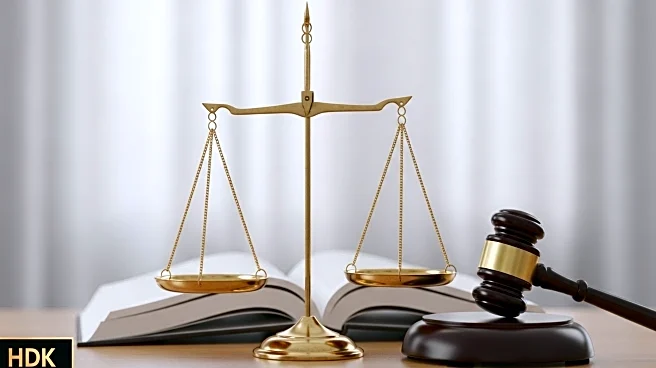What is the story about?
What's Happening?
The Schall Law Firm has announced a class action lawsuit against LifeMD, Inc., alleging violations of the Securities Exchange Act of 1934. The lawsuit claims that LifeMD made false and misleading statements regarding its competitive position and fiscal year 2025 performance guidance. Investors who purchased LifeMD securities between May 7, 2025, and August 5, 2025, are encouraged to contact the firm before October 27, 2025. The firm specializes in securities class action lawsuits and shareholder rights litigation, representing investors globally. The class has not yet been certified, and investors are advised to consider their legal options.
Why It's Important?
This lawsuit highlights significant concerns about corporate transparency and investor protection. If the allegations are proven, it could lead to substantial financial repercussions for LifeMD and impact investor confidence in the company. The case underscores the importance of accurate and truthful corporate communications, as misleading statements can result in financial losses for shareholders. The outcome of this lawsuit may influence how companies approach public disclosures and investor relations, potentially leading to stricter regulatory scrutiny and compliance requirements.
What's Next?
Investors have until October 27, 2025, to join the lawsuit. The class action process will involve certification of the class, which is a critical step in the litigation. If certified, the case will proceed with legal arguments and evidence presentation. The Schall Law Firm will continue to gather information and represent affected investors. The legal proceedings could take several months or years, depending on the complexity of the case and the court's schedule. Stakeholders, including LifeMD, may respond with legal defenses or settlements to mitigate potential damages.
Beyond the Headlines
The lawsuit against LifeMD may prompt broader discussions about corporate governance and ethical business practices. It raises questions about the accountability of corporate executives and the mechanisms in place to protect investors from fraudulent activities. The case could lead to increased advocacy for stronger regulatory frameworks and investor education initiatives to prevent similar incidents in the future.
















